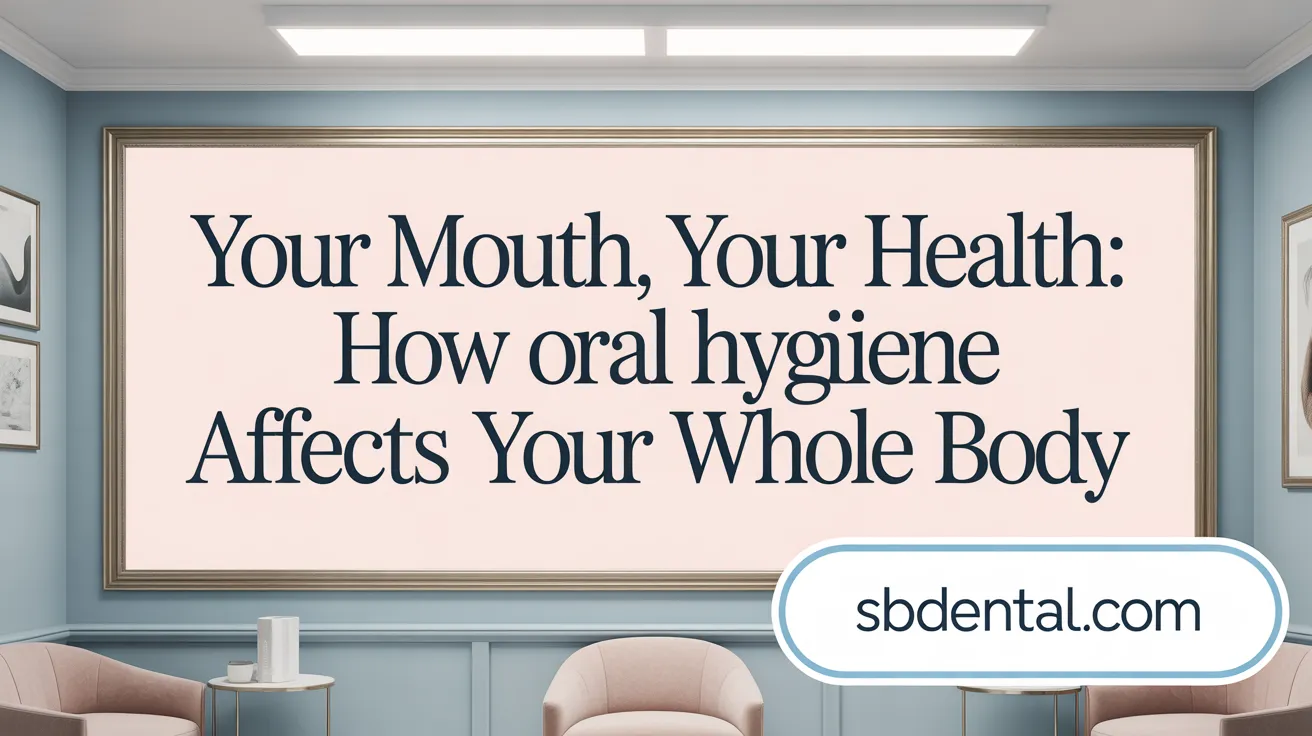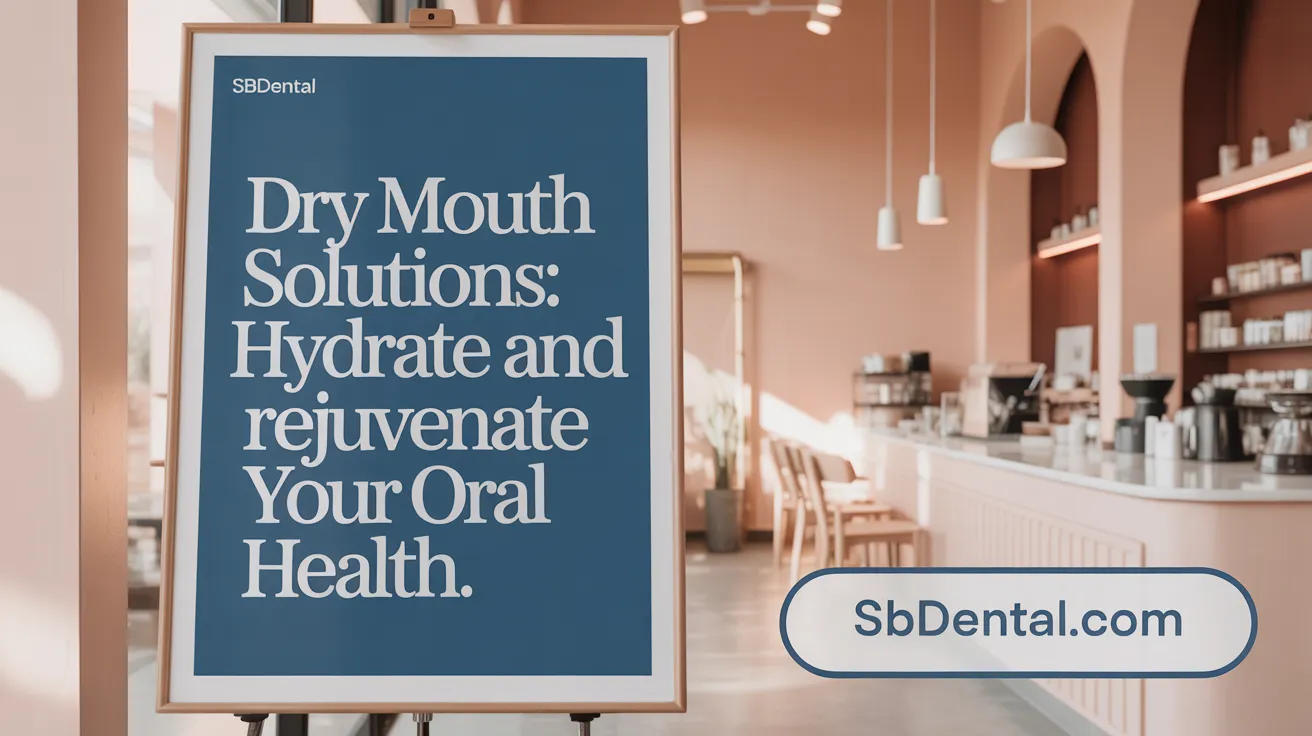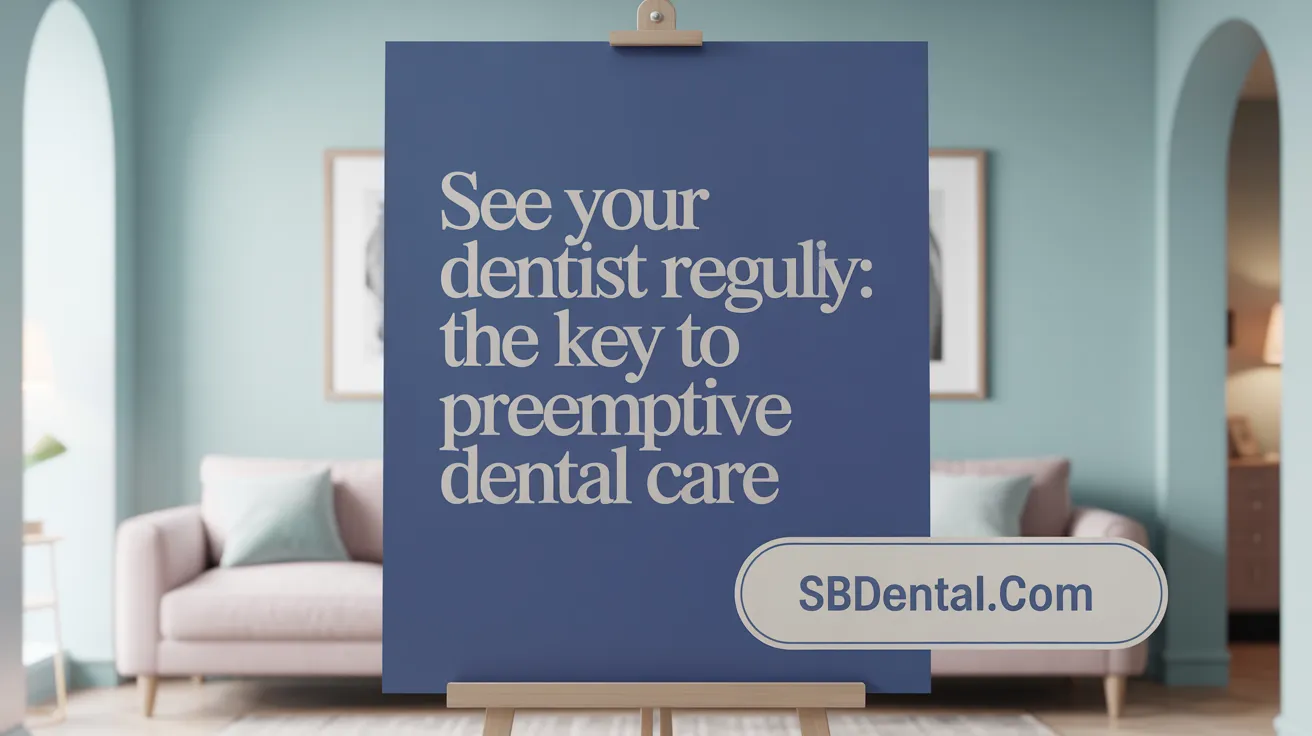Understanding the Vital Role of Oral Hygiene
Oral hygiene is more than just a cosmetic concern; it is a foundational component of overall health. Maintaining a healthy mouth contributes significantly to general well-being by preventing dental diseases that can have far-reaching consequences. This article explores essential preventive dental care strategies and shares practical tips for preserving a healthy smile throughout life.
The Impact of Oral Hygiene on Overall Health

Why is oral hygiene important for overall health?
Maintaining good oral hygiene goes beyond having a clean mouth and a bright smile. It plays a crucial role in supporting overall health and preventing serious health issues. Regular practices like brushing teeth with fluoride toothpaste, flossing daily, and visiting the dentist help keep harmful bacteria in check.
Poor oral health can lead to cavities, gum disease, and infections, which may affect other parts of the body. Bacteria from the mouth can enter the bloodstream, potentially triggering inflammation and contributing to conditions such as heart disease, strokes, and respiratory illnesses.
In pregnant women, poor dental care increases the risk of cavities and gum disease, which can negatively influence pregnancy outcomes and fetal health.
People with chronic illnesses like diabetes and heart disease are more prone to oral health problems, creating a cycle where bad oral health can worsen existing health issues. Additionally, aging can make oral hygiene more challenging, leading to tooth loss and further health complications.
To prevent these risks, consistent oral hygiene includes using fluoride toothpaste to strengthen teeth, cleaning between teeth with floss or interdental brushes, and visiting the dentist regularly.
Effective oral hygiene practices not only protect teeth and gums but also reduce the chance of developing systemic conditions. This connection underscores the importance of seeing oral health as an integral part of overall wellness and disease prevention.
Regular dental check-ups help detect early signs of health issues, while good habits such as avoiding smoking and limiting alcohol intake further strengthen health defenses. Vaccinations against HPV and managing underlying conditions like diabetes are also essential. Overall, caring for your mouth helps promote a longer, healthier life by reducing risks of serious diseases linked to poor oral health.
Best Practices for Maintaining Dental Health

What are the best practices for maintaining dental health?
Maintaining good oral health involves several essential daily habits. First, brushing teeth at least twice a day with fluoride toothpaste and a soft-bristled toothbrush helps remove plaque—the sticky film of bacteria that forms on teeth. Proper brushing technique is important; use small circular motions, angle the brush at 45 degrees toward the gumline, and carefully clean all surfaces of each tooth, including the front, back, and chewing surfaces.
In addition to brushing, flossing daily is crucial. Floss or interdental brushes effectively clean between teeth—areas where toothbrushes can't reach—helping to prevent cavities and gum disease. Wrap the floss in a C shape around each tooth and gently move it up and down under the gumline.
Regular dental checkups, usually every six months, enable professional cleanings and early detection of potential issues like cavities or gum disease. These professional visits also include assessments of overall oral health and the opportunity to receive advice tailored to individual needs.
Limiting sugary foods and drinks reduces the risk of tooth decay. Avoiding tobacco products, such as smoking cigarettes, is strongly advised because smoking increases the risk of gum disease and oral cancer.
Using antibacterial mouthwash daily can help control harmful bacteria and reduce plaque buildup. When selecting oral health products, look for those bearing the ADA Seal of Acceptance, indicating they have been tested and proven safe and effective.
Incorporating these habits into your daily routine, along with a balanced diet and the use of approved dental products, helps maintain a healthy mouth and prevent common dental problems like cavities, gum disease, and bad breath. Consistency is the key to long-term oral health benefits.
Effective Home Oral Care Routines: Brushing, Flossing, and More

What are effective home oral care routines including brushing and flossing?
Maintaining good oral health at home primarily involves consistent brushing and flossing habits. Experts recommend brushing teeth at least twice each day, ideally morning and night, for a full two minutes per session. Using a soft-bristled toothbrush, hold the brush at a 45-degree angle toward the gums. Gently move the brush in circular motions on all tooth surfaces, including the front, back, and chewing surfaces. Fluoride toothpaste plays a vital role in strengthening enamel and protecting against cavities.
Flossing is equally important and should be done daily. Use about 18 inches of dental floss, winding most of it around each middle finger. Gently guide the floss between teeth and curve it into a C-shape around each tooth, moving it up and down under the gumline. Around 10 strokes per tooth ensure thorough cleaning.
Beyond brushing and flossing, cleaning your tongue with a toothbrush or tongue scraper can significantly reduce bacteria, freshening your breath. Rinsing with an alcohol-free mouthwash containing antimicrobials or fluoride provides additional protection by controlling harmful bacteria and reducing plaque buildup.
Regular dental visits—generally every six months—are crucial for professional cleaning and early detection of potential issues. Combining these routines forms an effective strategy to maintain healthy teeth and gums, prevents decay, and supports overall well-being.
What are proper brushing techniques?
Proper brushing techniques involve more than just moving the brush over your teeth. Position the toothbrush at a 45-degree angle toward the gums and use gentle, small circular motions. Cover all surfaces: the outer, inner, and biting surfaces of each tooth. Don’t forget to brush your tongue or use a scraper—bacteria on the tongue can cause bad breath and contribute to plaque formation. Brushing twice daily for two minutes ensures comprehensive cleaning and prevents buildup.
How should I floss daily?
Daily flossing removes plaque and debris from between teeth and beneath the gumline—areas that a toothbrush cannot reach. Use about 18 inches of floss, winding most of it around your middle fingers. Gently slide the floss into the space between your teeth and curve it into a C-shape around each tooth. Use upward and downward strokes, applying light pressure to avoid damaging your gums. Regular flossing reduces the risk of cavities and gum disease and contributes to fresh breath.
Why is cleaning the tongue important?
The tongue harbors bacteria that can cause bad breath and contribute to plaque buildup. Brushing your tongue with a toothbrush or using a specialized tongue scraper helps remove bacteria, promoting fresher breath and better oral hygiene. Incorporate tongue cleaning into your daily routine, ideally during your morning and evening brushing sessions.
What are the benefits of using mouthwash?
Using an antimicrobial or fluoride mouthwash daily offers additional protection by reducing harmful bacteria and supporting enamel health. Alcohol-free options are recommended to avoid dry mouth and irritation. Mouthwash helps control plaque, freshen breath, and can even reach areas missed by brushing and flossing. Ensure the mouthwash you select has the ADA Seal of Acceptance for safety and efficacy.
How do I maintain my toothbrush?
Proper toothbrush maintenance involves rinsing your brush thoroughly after each use to remove toothpaste and debris. Store it upright in a holder and allow it to air-dry—avoid covered containers that can promote bacteria growth. Replace your toothbrush every 3 to 4 months or sooner if the bristles are frayed. Using the proper tools and habits prolongs the effectiveness of your oral hygiene routine.
Dietary Guidance and Lifestyle Choices for Optimal Oral Health
What dietary guidelines and lifestyle choices promote healthy teeth and gums?
Maintaining healthy teeth and gums depends greatly on your daily diet and habits. Consuming a well-rounded, balanced diet rich in fruits, vegetables, whole grains, and dairy products high in calcium and phosphorus supports strong enamel and healthy gum tissue. These nutrients are vital because calcium and phosphorus help rebuild and strengthen tooth enamel, making teeth more resistant to decay.
Limiting the intake of free sugars and acidic foods and beverages is crucial. Sugary snacks and drinks are primary contributors to cavities because they feed bacteria that produce acid, eroding enamel. Experts recommend keeping added sugars below 10% of your total daily calories, and minimizing snacking between meals can help prevent continual acid attacks on your teeth.
Certain foods serve a protective role. For example, cheese and yogurt are rich in calcium and phosphates, and they can help neutralize harmful acids in the mouth. High-fiber fruits like apples and carrots stimulate saliva flow, which naturally washes away food particles and acids, providing a natural defense against decay.
Hydration is another pillar of oral health. Drinking adequate water not only keeps the mouth moist but also helps dilute acids and wash away food particles and bacteria. Fluoridated water is especially beneficial as fluoride strengthens enamel and reduces the risk of cavities.
Lifestyle choices have a significant impact on oral health. Avoiding tobacco products like cigarettes and smokeless tobacco reduces the risk of gum disease, oral cancers, and tooth loss. Limiting alcohol intake also helps prevent dry mouth and reduces the risk of cancers associated with alcohol consumption.
Chewing sugarless gum after meals is a simple yet effective habit. It stimulates saliva production, which neutralizes acids and helps repair early tooth decay.
In summary, a combination of healthy eating, avoiding harmful substances, and good daily habits are essential for maintaining a radiant smile and healthy gums. Regular dental visits complement these efforts, enabling early detection and management of potential issues.
Managing Common Oral Conditions: Focus on Dry Mouth

What causes dry mouth?
Dry mouth, also known as xerostomia, can result from various factors. Common causes include side effects from medications, medical conditions such as diabetes or autoimmune diseases, dehydration, and lifestyle habits like smoking or excessive alcohol consumption. Some treatments for certain health issues can also reduce saliva production, making dry mouth a frequent concern.
How does dry mouth affect oral health?
Dry mouth can lead to several dental problems. Without enough saliva, the mouth's natural defense against bacteria weakens, increasing the risk of cavities, gum disease, and bad breath. It can also cause difficulty swallowing, speaking, and eating, and may lead to mouth sores or infections such as yeast overgrowth.
What are effective hydration strategies?
To combat dry mouth, staying well-hydrated is essential. Drinking plenty of water throughout the day helps keep the mouth moist. Sipping water regularly, especially after eating or during activities that dry out the mouth, can ease discomfort. In addition, using a humidifier at night adds moisture to the air, helping maintain oral hydration.
How can I avoid irritants that worsen dry mouth?
Avoiding caffeine, alcohol, tobacco, and spicy or sugary foods can significantly reduce dryness and irritation. These substances can dry out the mouth or irritate mucous membranes, worsening symptoms. Choosing non-irritating, moist foods and avoiding overly salty or acidic snacks also helps maintain oral comfort.
Are saliva substitutes and oral moisturizers helpful?
Yes, saliva substitutes and oral moisturizers, often containing Xylitol, can provide temporary relief from dryness. These products help coat the oral tissues, reduce discomfort, and protect against further irritation. Regular use as directed, especially for those with severe dry mouth, supports overall oral health.
What are the benefits of good oral hygiene in dry mouth?
Maintaining consistent oral hygiene practices, including gentle brushing twice daily with fluoride toothpaste and flossing, helps prevent cavities and gum disease in people with dry mouth. Using fluoride rinses and practicing good oral care reduces the risk of complications and keeps the mouth healthier.
What lifestyle adjustments can I make?
Adjusting daily habits can improve dry mouth management. Breathing mainly through the nose, avoiding mouth breathing, and humidifying indoor spaces help retain moisture. If medications are causing dry mouth, discussing alternatives with a healthcare provider is advisable. Regular dental checkups ensure early detection and management of related issues.
| Aspect | Recommendations | Additional Information |
|---|---|---|
| Hydration | Sip water often, use humidifier | Boosts overall moisture in the mouth and environment |
| Irritants | Limit caffeine, alcohol, spicy foods | Reduce further dehydration and irritation |
| Saliva Substitutes | Use Xylitol products, oral moisturizers | Temporarily soothe and protect oral tissues |
| Oral Hygiene | Brush with fluoride, use fluoride rinses | Prevents decay and gum problems |
| Lifestyle Changes | Breathe through nose, humidify air | Maintain natural moisture levels |
The Importance of Regular Dental Check-ups and Professional Preventive Care

Why are regular dental check-ups and professional preventive procedures important?
Scheduling regular dental visits plays a vital role in maintaining good oral health. These appointments allow dentists to detect early signs of dental issues such as cavities, gum disease, and even oral cancer, which can be life-saving if caught early.
Professional cleanings are an essential part of preventive care. They remove plaque and tartar buildup that regular brushing and flossing cannot eliminate, especially in hard-to-reach areas. This helps prevent tooth decay, gum inflammation, and periodontal disease.
Preventive treatments like fluoride applications and dental sealants provide additional layers of protection. Fluoride strengthens enamel, making teeth more resistant to decay, while sealants act as a barrier on the chewing surfaces of back teeth to prevent cavities.
Routine dental visits also enable early problem detection, which means less invasive and more affordable treatment options. Dentists can offer personalized advice on proper oral hygiene practices tailored to individual needs.
Modern diagnostic tools such as digital X-rays and intraoral cameras enhance early identification of potential issues before symptoms appear. These advanced technologies help ensure comprehensive care and better outcomes.
Overall, regular dental check-ups and preventive procedures contribute significantly to better oral health, a confident smile, and overall well-being. By investing in professional care, consumers save money and discomfort in the long run while enjoying the benefits of a healthier mouth.
Accessing Educational Resources and Evidence-Based Oral Health Guidance
Where can I find educational resources and evidence-based recommendations for oral health maintenance?
For reliable and comprehensive information on maintaining good oral hygiene, reputable sources such as the American Dental Association (ADA), the Centers for Disease Control and Prevention (CDC), and the International Federation of Dental Hygienists (IFDH) are excellent starting points.
These organizations offer a wide range of educational materials, including brochures, videos, mobile apps, and printable guides. They cover essential topics like proper brushing and flossing techniques, the importance of fluoride, and the necessity of routine dental checkups.
Peer-reviewed research journals and systematic reviews, such as those from the Cochrane Oral Health Group, provide the latest scientific evidence on prevention strategies, treatments, and public health initiatives.
Government health departments and awareness campaigns—like National Children’s Dental Health Month—also promote best practices and education tailored for all age groups.
In addition, professional dental guidelines and recent white papers support both clinicians and the public by offering current, evidence-based approaches to optimal oral health.
Access to these credible sources empowers individuals to adopt effective oral hygiene routines, understand preventive measures, and make informed decisions about their dental care.
Embracing Preventive Dental Care for a Healthy Smile
Preventive dental care is the foundation of maintaining a healthy mouth and overall well-being. By adopting proper home oral care routines, making informed dietary and lifestyle choices, and attending regular dental check-ups, individuals can effectively prevent dental diseases and sustain their oral health. Leveraging reputable educational resources empowers people to stay informed and motivated. Ultimately, investing in prevention ensures not only a beautiful smile but also enhances quality of life and supports long-term health.
